
Rebecca Stewart’s Blog: One man’s trash is another man’s treasure
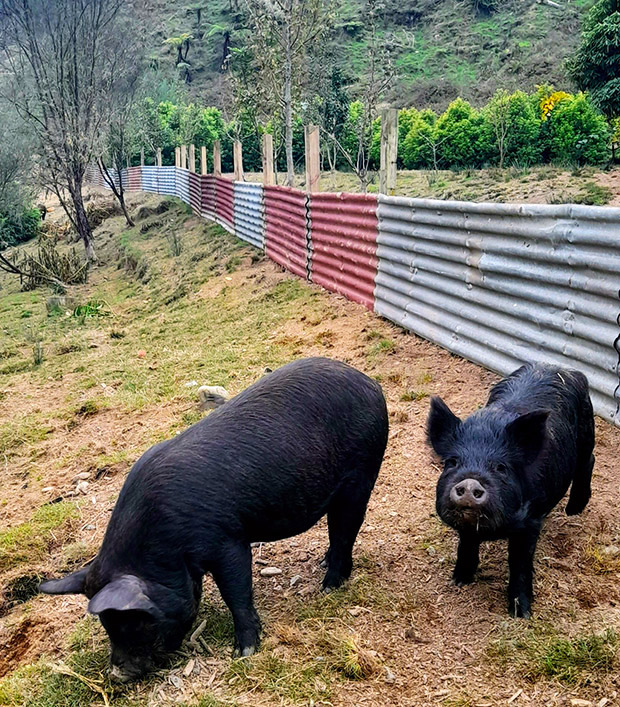
When the to-do list grows, Rebecca Stewart turns to the world of secondhand – saving the planet one rescued tool at a time.
When the pigs began causing havoc in the young orchard by digging around the roots of the trees and pruning lower branches, saving the orchard became our top priority. We needed to collect fencing materials.
Our resource pile, once spread around various locations, is now stacked under a big conifer tree and is the source of many big handy things gathered for ‘fix it’ and ‘build it’ jobs. Some items are yet to be allocated to an idea, but one must not walk past a bargain or freebie if it looks like having functional potential.
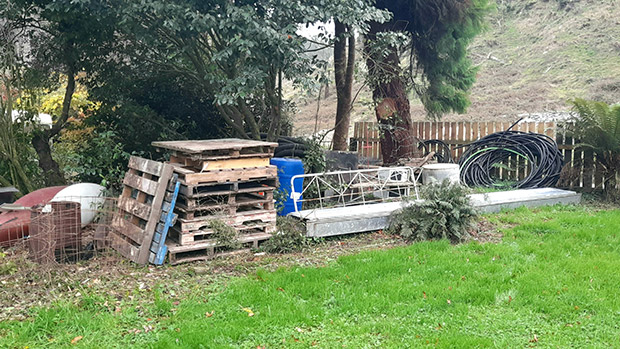
We have found the best defence against troublesome pigs is a corrugated-iron barricade. In the resource stack were posts, a mix of old and new. New left over from repairing the boundary fences after our pine harvest and another eight recovered from the no-longer-needed protective surrounds of the majestic oaks. A trip to a local recycling centre yielded a stack of cheap corrugated iron.
David built the iron wall over a few days and the trees were saved — much to the piggies’ disgust. It still awaits a salvaged mānuka rail along the upper portion, but it will do the job for now.
We are adept at imagining alternative functions and future possibilities for our “finds”. The saying ‘One man’s trash is another man’s treasure’ is certainly true. We have amassed some very useful things when helping people clean out their old sheds, backyards and clearing rubbish from paddocks.
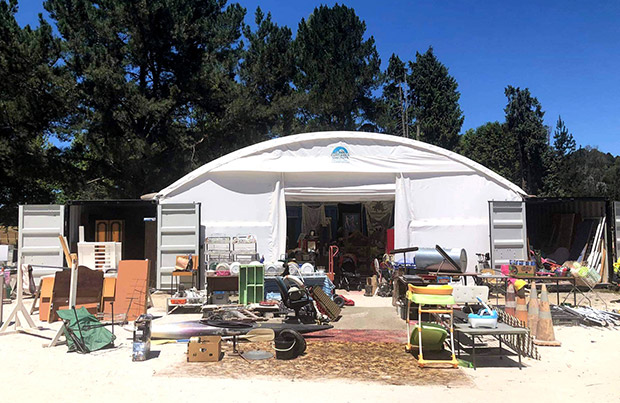
Visiting the reuse shop at our local dump is the highlight of our weekly town trips and we often spend hours fossicking. Sometimes we come across absolute treasures such as old tools or household items, solid native timber that becomes shelves for our food cool-store room or old doors and windows, or containers of nails and screws.
Our shed is also packed with wonderful finds that require dry storage. We know the rough dollar value of most things we come across but sometimes things also carry a ‘they don’t make them like that anymore’ value. Many of our household finds fall into this category as we love the treasures that belong in a 1920 bungalow like ours. Vintage kitchenware, sturdy coat hooks and furniture which just needs a bit of TLC. There is no room for fancy in our functional farmhouse. Rustic and well-used finds suit us perfectly. Their scuffed edges and marked surfaces speak of a history of use and their presence in our home and on our farm continues that legacy.
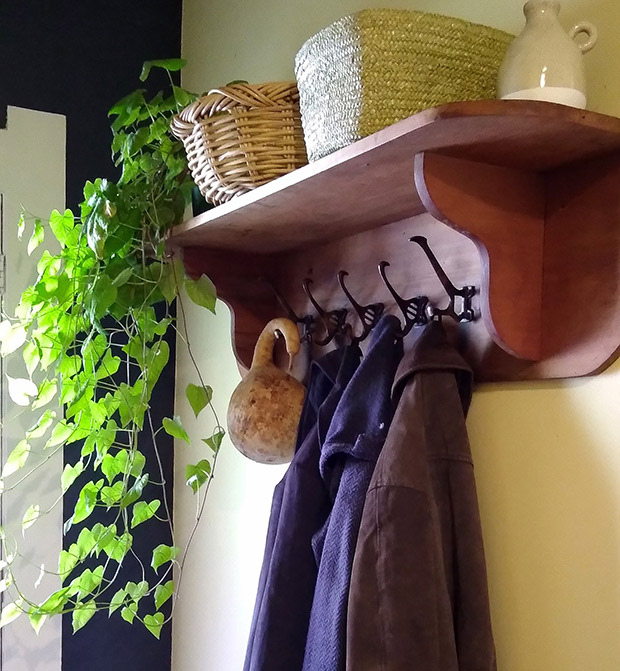
Vintage kitchenware, sturdy coat hooks and furniture which just needs a bit of TLC.
We also hunt out clothing, books, games, puzzles, arts and craft resources. Most of what we bring into our home is pre-loved or pre-owned. In a world hung up on consumerism and the ‘throw away culture’ the amount of discarded yet still useful stuff is staggering.
It is heartening to see how popular shops such as our reuse dump shop are becoming though it makes the competition for bargains a bit stiffer. Even more heartening is the understanding that because one person no longer finds an item useful, others may.
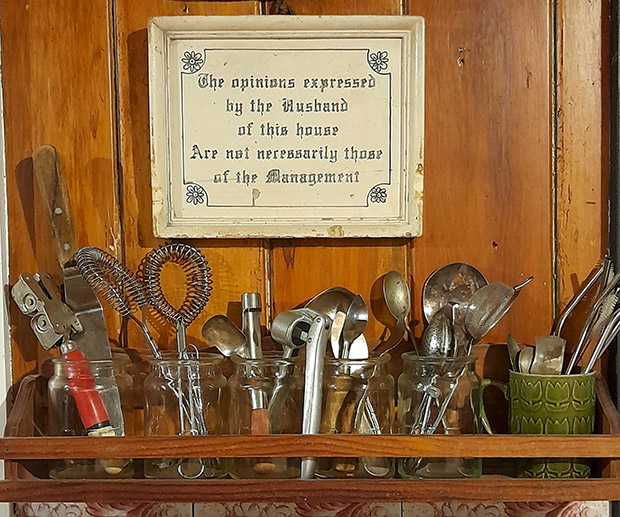
Taking the time to collect unwanted goods and drop them off at the local opportunity store is to take part in building a circular economy. An economy where reuse is king, not the dollar. It’s an economy built on the ‘one man’s trash’ philosophy — and that’s the kind of world we love to live in.
ABOUT REBECCA
In 2020, Rebecca and David Stewart subdivided and sold their block in a tiny Manawatu village in order to create a more self-sufficient way of life. Choosing to buy 6ha (14.8 acres) of land, most of it in pines in a remote corner of King Country, meant no mortgage and treasured financial independence. The distance doesn’t stop Rebecca from running the increasingly popular Homesteading New Zealand group on Facebook. She also posts regular updates on their farm’s transformation to its own page, Fodder Farm. Read more about their journey here, and visit thisnzlife.co.nz every month for the latest from their slice of New Zealand.

